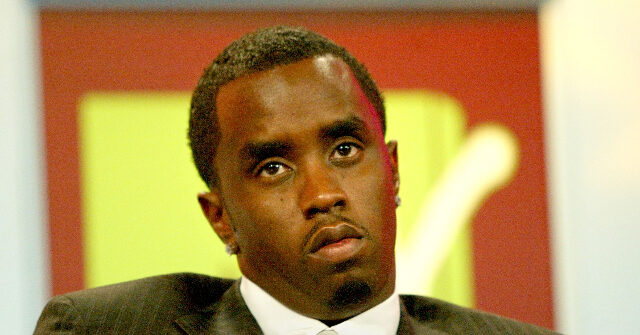Rapper 50 Cent is in the process of producing a Netflix documentary that explores the serious allegations against Sean “Diddy” Combs, the former music mogul facing multiple criminal charges. In collaboration with the documentary director Alexandria Stapleton, 50 Cent aims to present a narrative that goes beyond sensational headlines, highlighting the human impact of the allegations. They emphasized the importance of offering nuanced perspectives on the situation while reminding audiences that Combs’ story is not representative of the entire hip-hop culture, which has significantly contributed to society over the years. The documentary is currently in production, marking a notable moment in the ongoing rivalry between 50 Cent and Combs, which has been characterized by public jabs and taunts for many years.
In March, 50 Cent stirred controversy when he publicly expressed interest in obtaining video footage from alleged infamous parties hosted by Combs. Following the raiding of Combs’ Los Angeles and Miami properties by Homeland Security, 50 Cent took to social media, promising “top dollar” for any footage that might surface. His eagerness to uncover the secrets of these events was evident as he stated in an Instagram post that he doesn’t attend Combs’ parties, hinting at knowledge of unsettling activities occurring there. His social media presence has maintained an air of mockery towards Combs, as he continues to suggest there is more to the story than has been revealed.
Recently, 50 Cent made headlines again when he responded to inquiries about the allegations against Combs, asserting, “Yeah, he did it.” In this interview with Enthusiast Report, he reflected on his long-standing vocal opposition to the culture surrounding Combs’ parties. 50 Cent pointed out that while many celebrities remain silent regarding such issues due to their involvement in the scene, he has consistently distanced himself from Combs’ lifestyle and the concerning behaviors associated with it. He proclaimed a preference for a more conventional lifestyle, declaring that he is “just not with all that freaky shit,” drawing a clear line between himself and the controversial music mogul.
Sean Combs has recently faced severe legal consequences, with multiple charges stemming from accusations of abusing and coercing women over several years. A federal indictment outlines a series of heinous claims, including racketeering conspiracy, sex trafficking, and forced labor. Among the allegations are claims that Combs hosted “Freak Off” parties—events labeled as dayslong sexual activities under the influence of drugs, where participants were reportedly manipulated and controlled. These parties allegedly featured Combs actively orchestrating the events while recording them as a means to threaten victims into compliance. The disturbing nature of the allegations has drawn widespread attention, marking a significant chapter in the history of the hip-hop industry.
The extent of the charges against Combs is alarming, with serious implications for his future. He faces significant legal battles, including one count of racketeering conspiracy and charges related to sex trafficking and transportation for purposes of prostitution, which carry very harsh penalties. The severity of these charges—ranging from a mandatory minimum of 15 years to potential life sentences—illustrates the gravity of the accusations he faces. This situation not only tarnishes the reputation of Combs but also has a broader impact on the music industry, raising discussions around accountability and the treatment of women within the culture.
50 Cent’s involvement in the documentary and his relentless criticism of Combs contribute to an evolving narrative within hip-hop that challenges longstanding norms. The upcoming documentary aims to spotlight not just the allegations against Combs but also the problematic behavior that can flourish unchecked in high-profile circles. As production continues, 50 Cent, along with Stapleton, emphasizes the need for the story to encapsulate various perspectives, reinforcing the complexities of celebrity culture while serving as a platform for victims who have traditionally lacked a voice. As the situation unfolds, it remains to be seen what insights the documentary will deliver and how it will influence the public perception of both figures and the hip-hop industry as a whole.

